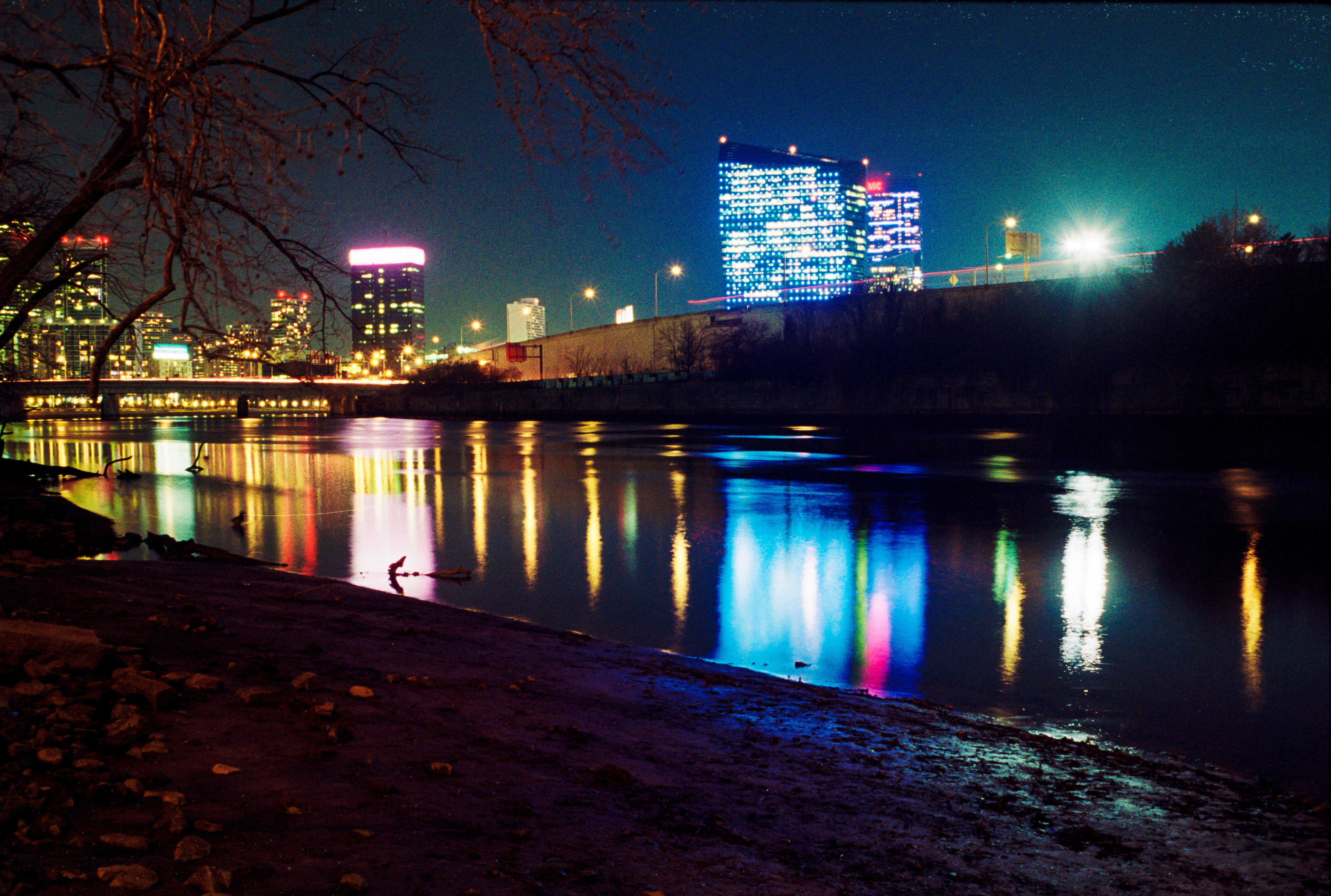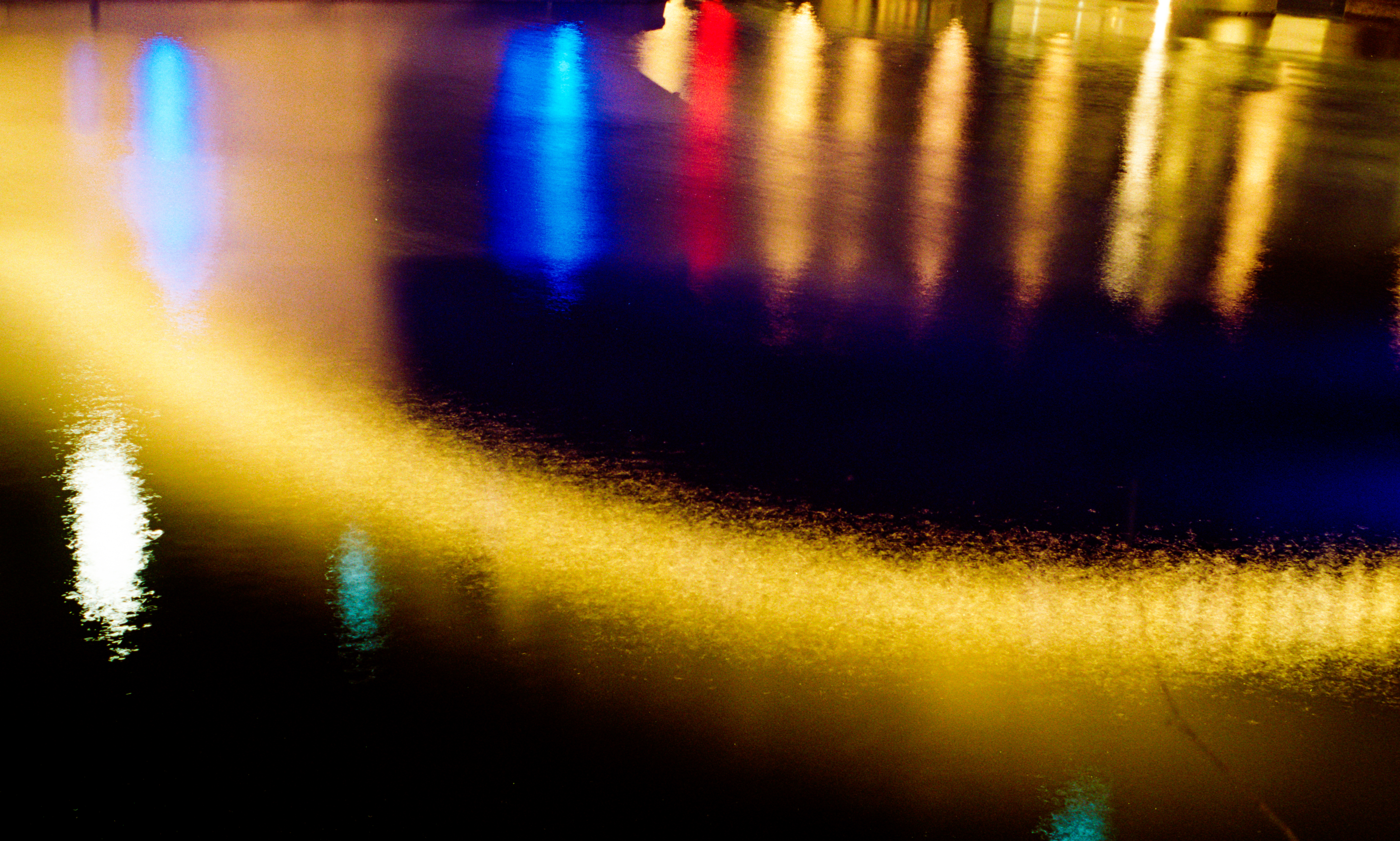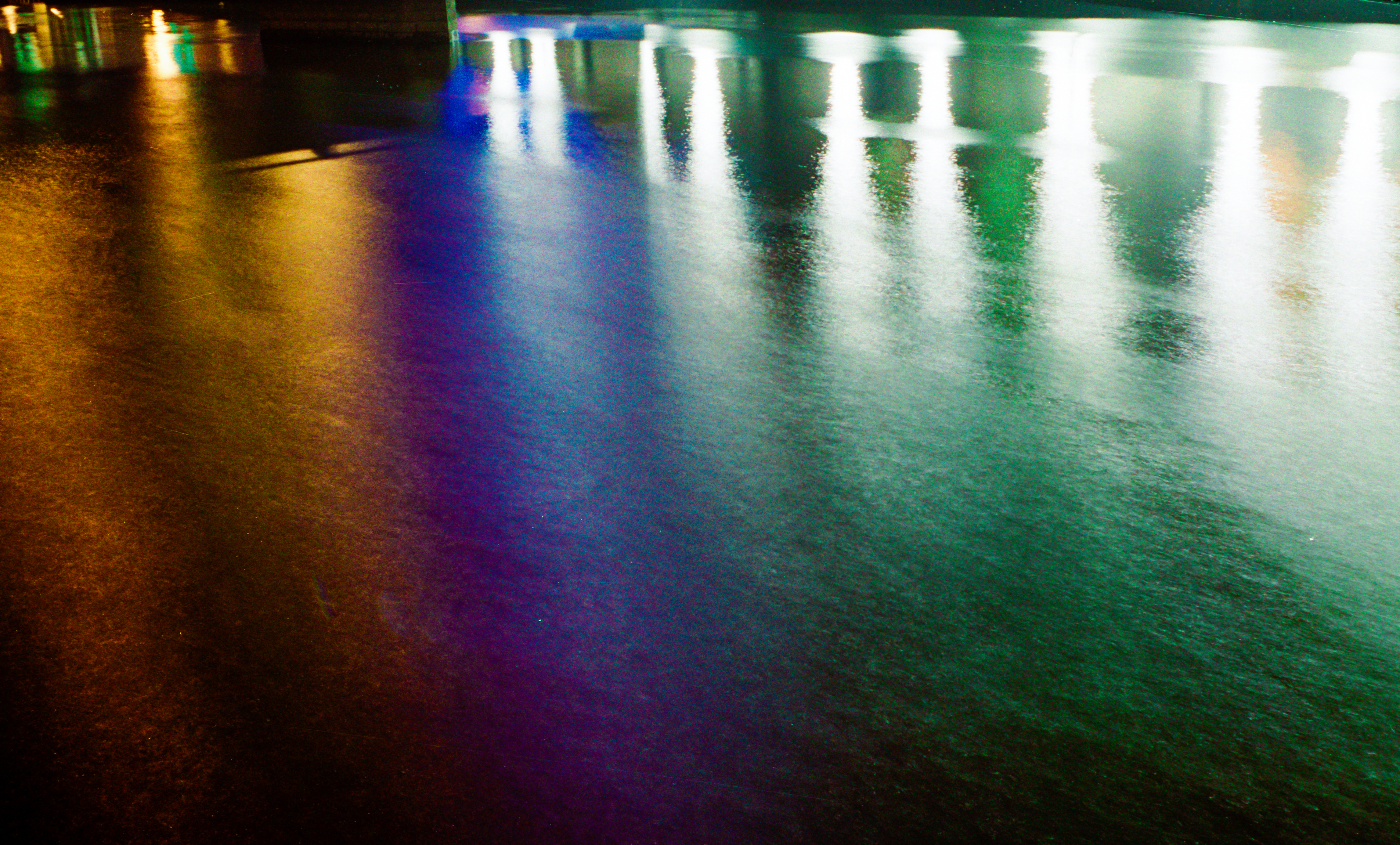If you've been following the Philly On Film! series so far, you know that I usually do these with a specific destination in mind, and I'm joined by my friend Rish in my analog adventures. Since this particular set of photos revolves more around an artistic concept than a location, and Rish wasn't present, I'm dubbing it a half-volume.

I've spent many nights on the waterfront of the Schuylkill, smoking weed or hanging out or breaking up or talking through. Regardless of what brought me to the river on any given night, I was always joined by the sight of city lights dancing across the water.

I've referred to these reflections as one of the most beautiful moments in the city, and I stand by that. There's something really special about the colors and the motion. I think some of the impressionist painters had a similar feeling. Works by Van Gogh and Monet display an attention to light on water that shines in their technique. I wanted to try my hand at capturing some of that beauty.

Armed with only my Icarex 35 CS camera (loaded with Kodak Gold 200 color film), a Zeiss Skoparex 35mm f3.4 lens, and a tripod, I bundled up and headed to the Schuylkill on a cold, windy, boring night. My intention was to find particularly colorful reflections, aim my lens at the water, and take bracketed long exposures to see just what I could come up with. Bracketing is a technique wherein you calculate what you believe to be the correct exposure, and then take 3 versions of the shot, one with less exposure, one with the 'correct' exposure, and one with more exposure, in the hopes that one of the three will produce the result you're looking for.

For this situation, I tried each shot at 10-second, 15-second, and 20-second exposures with an aperture of f8. The biggest difference I noticed was in the texture of the water. The lights weren't noticeably more or less intense, but the appearance of the water became softer, less defined, more like an oil painting with longer exposure. I found I liked this look the best, so most of the shots I saved were 20-second exposures.

I really enjoyed this project, and long-exposure photography in general, because for once the camera gets to see something that you don't. For me, photography is often about seeing something I find interesting, and then trying to use my equipment and knowledge to represent that something in the best way possible. With long exposures, I don't have the ability to see different moments of time happening all at once. Only the film can do that, and the results are often beautiful and unexpected.

** Pictures were taken on Kodak Gold 200 film with a Zeiss-Ikon Icarex 35 CS 35mm camera. All pictures were developed at home. If you enjoyed this post, feel free to follow me and check back in for more soon!
This is super cool. That river is so beautiful at night. In my photography class we talked both about how water looks under different shutter speeds AND combining multiple exposures into a single shot.
The fast shutter gives a crystal clear representation while the longer shutter speed really smoothes things out. It's seems obvious once you think about it, but it's really cool to see a side by side of the difference

HDR, or High-Dynamic-Range photos combine the same picture with multiple exposures to make a single photo with impressive range. Just like bracketing you'll try out different exposures, but then you can squish them all together into a single HDR image to kind of cherry pick the best parts of each photo. Of course this requires heavy computation, and limited to digital photography (to my knowledge).

Downvoting a post can decrease pending rewards and make it less visible. Common reasons:
Submit
The reflections on the water are incredibly fascinating. You've really captured quite a scene with these photos. You should check out "light painting" where you'd paint pictures with a long exposure with a flashlight or something similar! I think you'd create some incredible images with that concept!
https://en.wikipedia.org/wiki/Light_painting
Downvoting a post can decrease pending rewards and make it less visible. Common reasons:
Submit